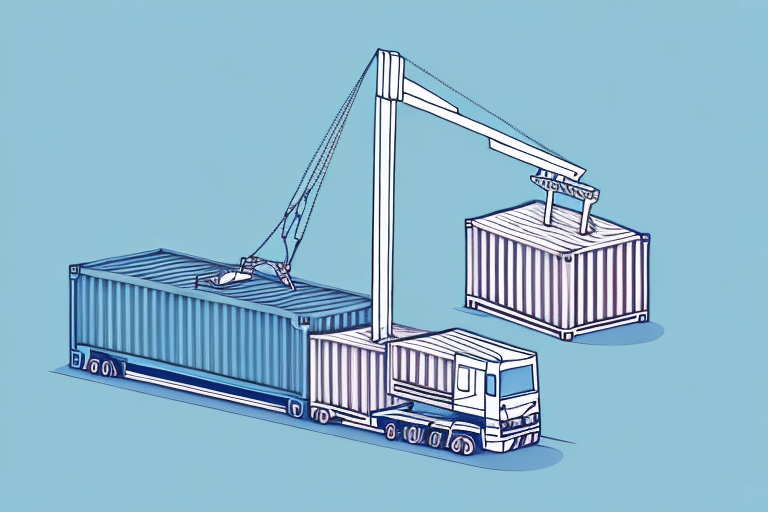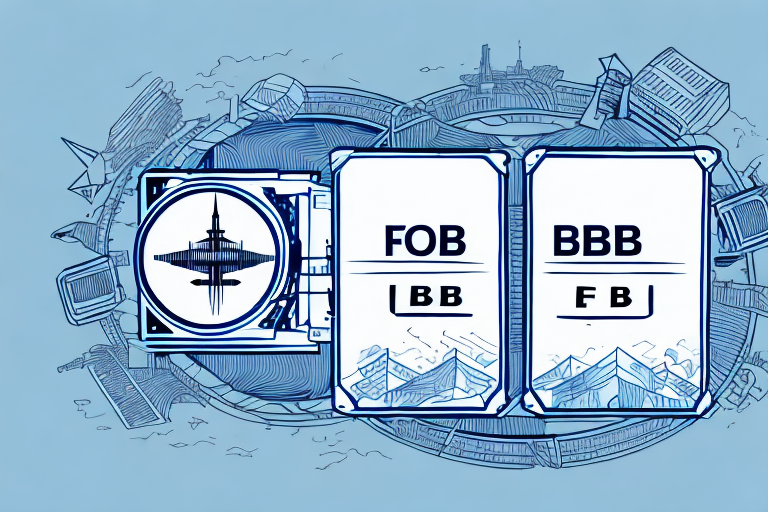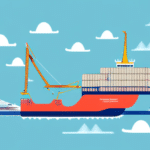What Is FOB Shipping Point? A Comprehensive Guide
Understanding shipping terms is essential for business owners to ensure efficient and smooth operations. One of the pivotal terms in logistics is FOB Shipping Point. This guide provides an in-depth analysis of FOB Shipping Point, including its definition, differences from other shipping terms, advantages and disadvantages, legal implications, and the role of technology in modern shipping practices.
The Basics of FOB Shipping Point
FOB Shipping Point stands for "Free on Board Shipping Point." It signifies the point at which ownership and responsibility for goods transfer from the seller to the buyer. Specifically, ownership passes when the goods are loaded onto the carrier at the seller's location. From this moment, the buyer assumes all risks and costs associated with the shipment.
In contrast, FOB Destination means that the seller retains ownership and responsibility until the goods reach the buyer's location. Understanding this distinction is crucial for determining who is liable for goods during transit and who bears the shipping costs.
FOB Shipping Point vs. FOB Destination
Ownership Transfer
The primary difference lies in the transfer of ownership. With FOB Shipping Point, ownership transfers at the seller's premises, whereas, with FOB Destination, it transfers upon delivery to the buyer's location.
Responsibility and Costs
Under FOB Shipping Point, the buyer is responsible for shipping costs and bears the risk of loss or damage during transit. Conversely, FOB Destination places these responsibilities on the seller until the goods are delivered.
Financial Implications
Choosing FOB Shipping Point can lead to lower product prices since the seller's costs are limited. However, buyers must account for additional shipping expenses and potential risks. For more detailed comparisons, refer to resources like the Investopedia guide on FOB terms.
Advantages and Disadvantages of FOB Shipping Point
Advantages
- Cost Efficiency for Sellers: Sellers incur lower costs as they are only responsible for delivering goods to the carrier.
- Control Over Shipping: Buyers can select preferred carriers and shipping methods, potentially improving delivery times and reducing costs.
- Flexibility: Buyers have the autonomy to manage and track their shipments directly.
Disadvantages
- Increased Risk for Buyers: Buyers bear the risk of loss or damage during transit.
- Administrative Burden: Managing shipments requires additional effort in coordination and logistics for buyers.
- Potential for Higher Costs: While product prices may be lower, cumulative shipping costs can offset these savings.
Legal Implications of FOB Shipping Point
FOB Shipping Point has significant legal implications that can affect both buyers and sellers. It defines the transfer of ownership, which in turn determines liability for goods at various stages of transit.
Liability for Damage or Loss
Once goods are loaded onto the carrier, the buyer assumes liability. This means that any damage or loss during transit is the buyer’s responsibility. It's essential for buyers to consider insurance options to mitigate these risks.
Compliance with Regulations
Both parties must adhere to relevant trade and customs regulations. Failure to comply can result in legal complications and financial penalties. Refer to the U.S. Customs and Border Protection guidelines for more information.
The Role of Technology in FOB Shipping Point
Advancements in technology have transformed how FOB Shipping Point transactions are managed, enhancing efficiency and transparency.
Logistics Software
Modern logistics software enables real-time tracking of shipments, automated documentation, and streamlined communication between buyers and sellers. Tools like Flexport provide comprehensive solutions for managing FOB Shipping Point shipments.
Blockchain Technology
Blockchain offers secure and immutable records of transactions, improving trust and reducing the likelihood of disputes. It allows for precise tracking of ownership transfers and shipment details.
Automation and AI
Automation and artificial intelligence optimize route planning, predict potential delays, and enhance overall supply chain management, leading to more efficient FOB Shipping Point operations.
Impact of FOB Shipping Point on Business Operations
Implementing FOB Shipping Point can significantly influence a business's logistics strategy and financial health.
Cost Management
While FOB Shipping Point can reduce initial product costs, businesses must account for shipping expenses and potential risks. Effective cost management strategies are essential to leverage the benefits fully.
Supply Chain Control
Buyers gain greater control over their supply chain, including carrier selection and shipment scheduling. This control can lead to improved delivery times and customer satisfaction.
Risk Mitigation
Understanding the risks associated with FOB Shipping Point allows businesses to implement strategies such as insurance and robust contractual agreements to protect their interests.
Best Practices for Negotiating FOB Shipping Point Terms
Negotiating FOB Shipping Point terms requires clear communication and strategic planning to ensure mutual benefits for both buyers and sellers.
Clear Responsibility Allocation
Explicitly define the responsibilities of each party regarding shipping, handling, and liability to prevent misunderstandings and disputes.
Carrier Selection
Choose reliable carriers with strong track records to minimize risks associated with shipment delays or damage. Research and compare carriers to find the best fit for your needs.
Insurance Coverage
Invest in comprehensive insurance to protect against potential losses during transit. This step is crucial for mitigating risks inherent in FOB Shipping Point arrangements.
Detailed Contracts
Include all agreed-upon terms in written contracts, specifying shipping methods, costs, and timelines. Clear contracts serve as a reference point in case of any issues.
Conclusion
FOB Shipping Point is a foundational term in the logistics and shipping industry, defining the transfer of ownership and responsibility for goods from sellers to buyers. By understanding its implications, advantages, and legal aspects, businesses can make informed decisions that enhance their supply chain efficiency and reduce risks. Leveraging modern technology and adhering to best practices in negotiation further strengthens the benefits of FOB Shipping Point, making it a valuable component of successful business operations.






















